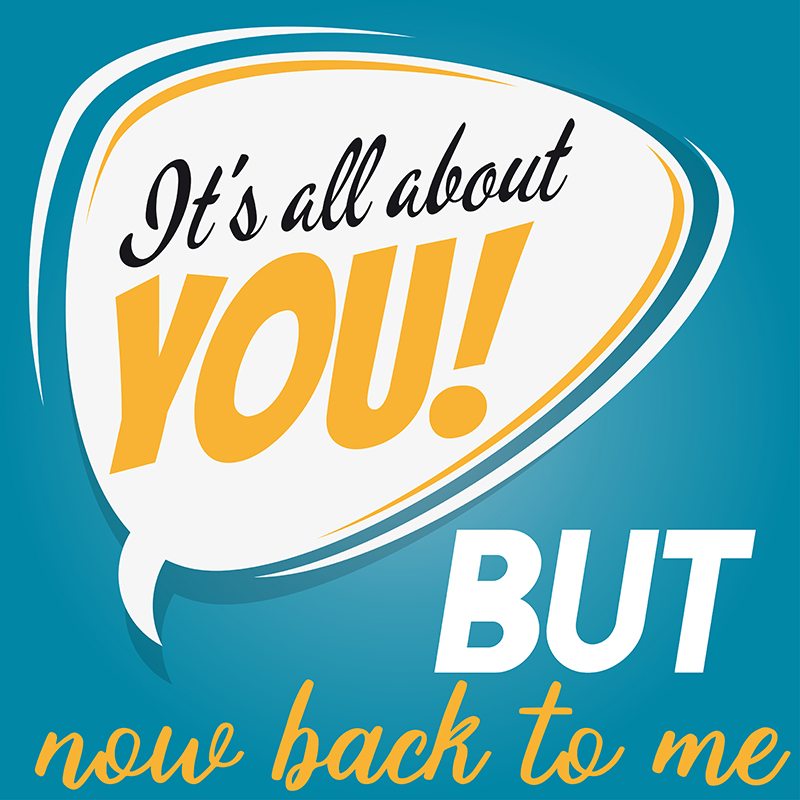
This article was originally published in North County News.
We were waiting to board the plane to Orlando for our first-ever seven-day cruise. I had listened carefully as Brittany, my 14-year-old daughter, described all the items she had packed for the vacation.
In response, I told her about one special outfit I packed, obviously offering too much detail. She looked me straight in the eyes and said with a slight smile,
“That’s enough about you, now back to me!” dramatically fanning her hand to her chest.
My mouth dropped open.
“What did you say?” I asked.
“You know, I just said, ‘Back to me.'”
My eyes widened as did hers. Then we both burst into laughter.
“Where did you ever get such a comment?” I gasped.
I should have known. Over the last five years since my paralysis, I have had various sitters and caregivers help me from time to time. This latest crop included a bubbly and energetic Towson University junior, Jamie, with a Julia Roberts smile who uses word-choice like the secret chili-pepper ingredient in a favorite chocolate recipe. I’m always on-guard around her, never knowing when a new term or comment will come flying my way.
I’ll never forget the first comment she made after being in my home just a couple of times. I had told her about an older friend of mine who was dating a couple of men at that time. “Wow, she’s a player,” Jamie remarked softly, tilting her head back slightly and flashing that grin. I shook my head and chuckled.
A couple of weeks later, Brittany showed Jamie her new pair of Carolina blue Nikes with a strappy sandaled back.
“Now those are some fat shoes,” Jamie said.
“Fat?” I asked. Brittany and Jamie snickered uncontrollably.
“No, Mom, FFAAT,” Brittany corrected, stretching out the short “a” sound and while emphasizing the “f”.
“P-H-A-T,” Jamie offered. “You know, like cool or awesome.”
OK, so I have “players” for friends and a daughter with “phat” shoes. My head was spinning.
So when I heard the latest, “Back to me,” I wasn’t totally surprised by its originator. Yet there was an unusual, almost ironic honesty nested in that statement, especially coming from a teenager. So much of their world centers on self. As I pondered that reality, I began to look for opportunities to say “Back to me” when Brittany and I were talking, just to make her aware of the shift in focus in the conversation.
Then one evening during dinner with a girlfriend, I told the “Back to me” story. She practically suffocated with laughter. For the remainder of the dinner we used that comment as a transitional phrase to steer our conversation. I’d ask a question about her, let her respond and then say, “Back to me.” She did the same.
I must admit it was a jarring experience when I’d be telling a most fascinating story, riding high in the saddle, and then she’d quip, “Back to me,” ripping the reins from my hands.
Yet as the conversation progressed and we refined the timing of the selfish request, we noticed that one person’s story combined with a “Back to me” related comment created a rich conversation, bound with the give and take of self-disclosure. As we swapped “war stories,” we discovered “back to me” could weave others to self and self to others as long as we were mindful of connecting the conversation. “Back to me,” says with brutal candor, “I matter.”
Creative “Back to me” transitions say, “Your thoughts matter enough that I want to connect my experience with your experience.”
It adds, “Back to me – as it relates to you.”
Want to liven up your conversation with your teenager? A friend?
Ask for their opinion or thought on a topic. Then inject, “Now back to me!” Trust me, the reaction is priceless.
Follow Me!